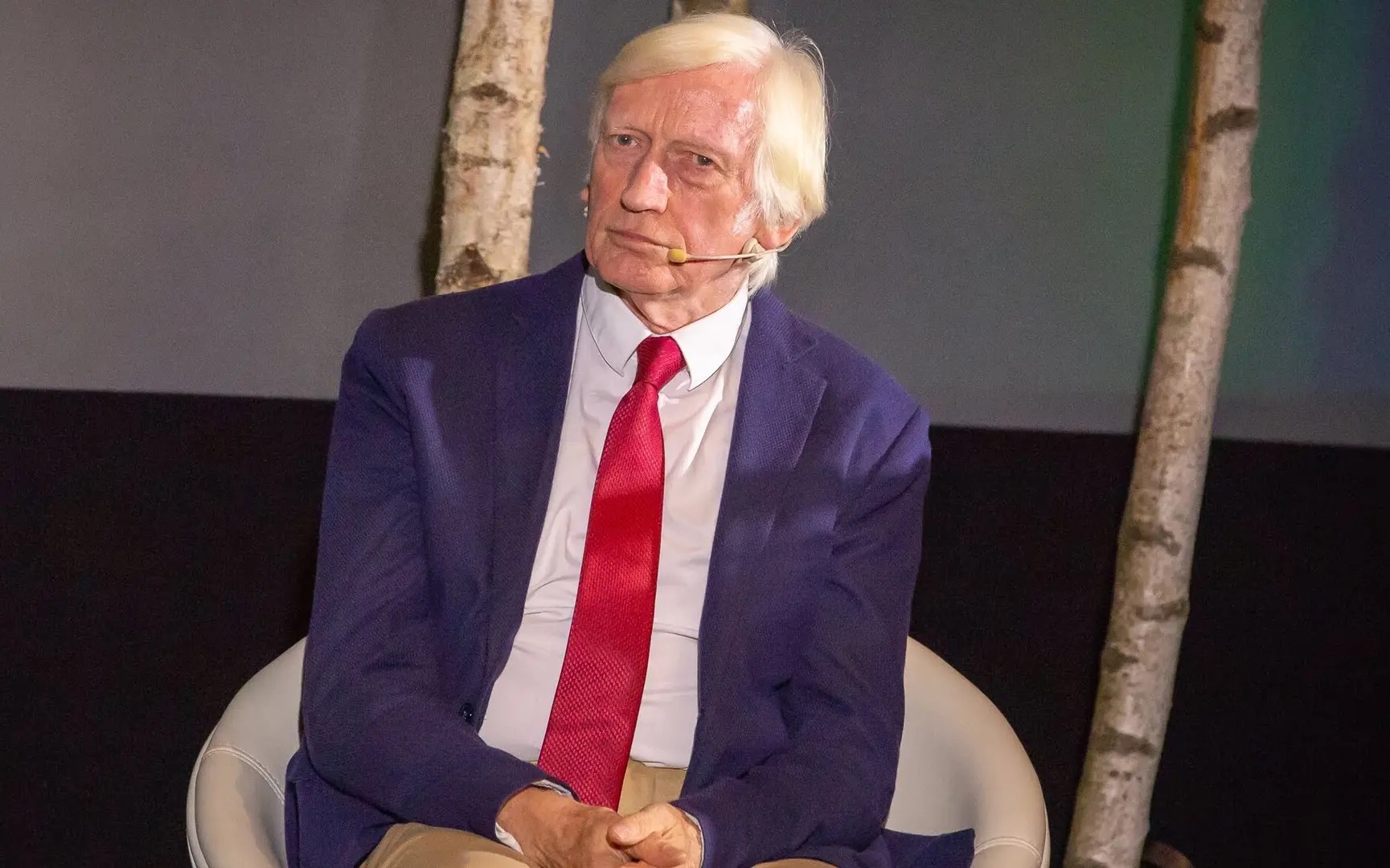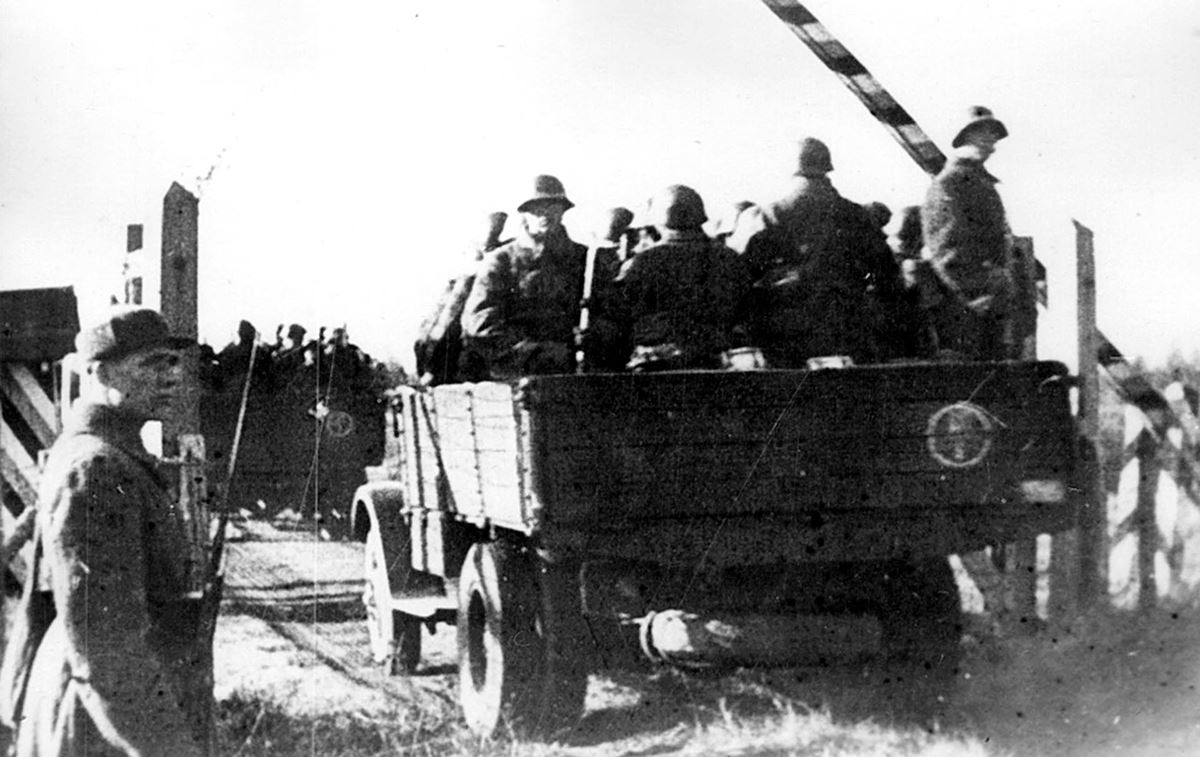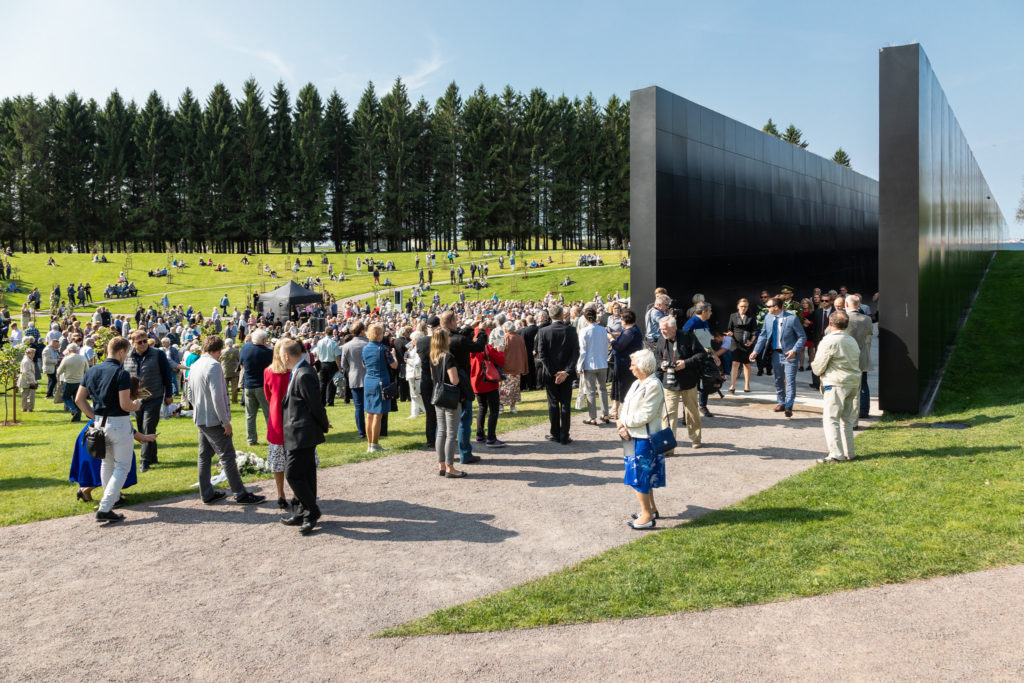The Crimes of Totalitarianism: Why is National Socialism remembered more than Soviet Communism?
Both the Nazi and Soviet regimes were guilty of heinous crimes against humanity. Yet, the crimes of Nazi Germany tend to occupy much more of the public historical imagination today than do their Soviet counterparts. Professor Richard Overy, a historian with a special interest in the dictatorships of Hitler and Stalin, investigates why, exactly, this imbalance exists.
The European Parliament in 2009 chose to nominate 23 August as a date each year to remember the victims of European totalitarianism. The date was chosen deliberately to mark the moment in 1939 when Hitler’s Germany and Stalin’s Soviet Union signed a non-aggression pact whose secret protocols effectively divided eastern Europe into spheres of domination by the two dictatorships.

The Russian government challenged the choice of the date because it seemed to imply that the two regimes were similar when it came to taking over territory and subjecting the annexed populations to harsh authoritarian rule. The choice was deliberate because the date was designed to signal that German and Soviet totalitarianism, the first for six or seven years, the second for more than four decades, were the ones responsible for all the human damage the region experienced between 1939 and 1989.
Russian protest at the date chosen marked the onset of a sustained campaign to demonstrate that Soviet intervention in eastern Europe was not in any sense the equivalent of German. Even President Putin has joined the effort to rescue the reputation of the Soviet Union. In a widely-read article in the conservative American journal The National Interest, Putin has argued that the Soviet-German Pact was forced on Stalin because of the distrust of the British, French and Poles, who would not reach a military agreement with the Soviet Union.
The secret protocols to the Pact are presented in a quite different light: the Baltic States, Putin argues, joined the Soviet Union on a consensual basis; occupying and annexing eastern Poland meant freeing Polish workers and peasants from the yoke of landlords and capitalists. The current Russian view of the outbreak of war is to blame Poland and the Western Allies, but not Germany, whose leader was actually responsible for the destruction of Poland.

It is now dangerous in Russia to discuss in public the Soviet deportations, the systematic abuse of human rights, the murder of nationalists and intellectuals throughout the territories acquired in 1939-40 and re-acquired in 1944-45. Putin even suggested that Soviet expansion saved the Jews of the region from Hitler, while overlooking the systematic suppression of the Jewish religion and the deportation to camps of an estimated 25,000 Jews. Public history in Russia has become a distorted history with the Soviet Union seen as a positive force in contrast to the harsh imperialism of the Third Reich.
Nothing like this could have occurred in Germany in the past 75 years. The memory of the grim reality of the Hitler dictatorship was etched into the culture and politics of both post-war Germanies, and even more so in the united German state after 1990. The more that is discovered about the crimes of the regime, the more secure is the public rejection of everything the Third Reich stood for. No argument could possibly be accepted that the Pact of 23 August was anything more than a cynical move to try to secure the isolation of Poland before it was devoured by German forces. German public history is centrally concerned with acknowledging the victims of totalitarianism.
The fringe minority of neo-Nazis is shunned by the great majority; Western judgements about the Hitler years are generally accepted. Modern Germany has tried to come to terms with a deplorable past by openly acknowledging the crimes of totalitarianism, including now the dictatorship practised in the former DDR. A sober sense of history dominates German views of the recent past.
Why is the memory culture surrounding the Soviet and German dictatorships so different? The two systems shared many common characteristics, however distinct their ideology and social ambitions. There are three factors to consider: first, the Soviet Union was a victor power in 1945; second, the ideological rhetoric of the two regimes was entirely different; third, Western public history has become fixated on memory of the Third Reich, but has little interest in presenting a parallel Soviet story.
The fact of Soviet victory over Hitler’s Germany has clearly affected the way the two regimes are remembered. One current concern in Russia is the belief that the West has never fully acknowledged that the Soviet Union was the principal factor in German defeat. This has become a major element in Russian public history where rejection of Nazism is built into German public history. The story of the Soviet war effort is one of exceptional sacrifice to serve the Allied cause.
No Russian leader has any incentive to start regretting the abuses of the Soviet system because this would undermine an important element in Russian national identity. The annual parade for VE-Day on 9 May has become under Putin a ceremony designed to embed in popular memory a positive view of Soviet war effort and the system that waged it. Nor did the Western Allies have any incentive during the war to highlight the totalitarian nature of their ally, a view that survived into the post-war years. A monument to the Soviet dead in the war, opened in 1999, can be found in the grounds of the Imperial War Museum in London, where a ceremony is also held every year to mark VE-Day and to remember the Soviet contribution to victory.
The second factor stems from the obvious ideological gulf between the two systems, something embedded in public discourse at the time and since. Hitler’s Germany was dedicated to creating a German-dominated empire in Eurasia designed to benefit only the German people at the expense of subject and dependent populations, an empire that was also ‘cleansed of Jews’. These were narrowly ethnocentric ideals which had no universal appeal and were not intended to have.
By contrast, the public language of Soviet communism both under Stalin and his successors was universalist, promising ‘liberation’ not only from German occupation during the war, but from social and economic oppression, Western imperialism, and war. These universal claims explain why there were so many supporters and fellow-travellers in the West because they wanted to believe that communist aspirations did indeed have a universal application, and that the language of peace and social progress was genuine. In the West, there were very few fellow-travellers of National Socialism.
Although the truth about the totalitarian extremes of the Soviet system has been available for decades, the idea that the Soviet Union was in general a force for progress, while the Third Reich was a reactionary barrier to it, has shaped the way the two regimes have been remembered. There has been an understandable reluctance to relativize the crimes of the Hitler dictatorship by comparing them with those of the Soviet system, and in Russia today any attempt to do so may be treated as illegal defamation of historical memory.
There has been little effort in German public history to compare the two, since this might challenge the ‘collective guilt’ complex if the crimes of the two could be reasonably compared. The German political scientist Ernst Nolte caused a storm of protest in the 1970s by suggesting that Nazism was in some way a mirror image of Soviet Communism, a view that was, and still is, widely rejected. There exists a reluctance outside Russia to call the Gulag prisons ‘concentration camps’, which is what they were; the term ‘perpetrator’ is applied to all those who participated in the crimes of the Hitler regime, but it is not a term conventionally applied to the police and security forces in the Soviet Union, who ran the camps, tortured prisoners, executed ‘enemies of the people’, or murdered their victims.
The third factor is the very different way in which the two forms of totalitarianism have been appropriated in the public history culture of the West. Here the memory of what Hitler and National Socialism represented is paramount. The decision to name 27 January as Holocaust Memorial Day, approved by the United Nations General Assembly in November 2005, has encouraged numerous initiatives to recall the Holocaust through memorial events, monuments, museums and educational programmes. Even in Russia there is now in Moscow a Jewish Museum and Tolerance Centre. In Britain and the United States – neither of them with experience of totalitarianism – remembering the Holocaust has become embedded in public history. Most school-age children are exposed at some point to the account of the Jewish genocide even to the exclusion of other victims of National Socialist persecution.
The evils inspired by Hitler are now embraced as universal evils. Public awareness of what German totalitarianism meant is higher than ever before. But there is no equivalent for the Soviet dictatorship; in the Western democracies 23 August has no resonance. Students who know all about the Gestapo would puzzle over the acronym NKVD because there is no public history in the West dedicated to understanding the central instruments of Soviet totalitarianism. Only in Eastern Europe is that awareness significant.

In 2018, the Estonian president unveiled a new monument outside Tallinn to the victims of Soviet totalitarianism; along the wall of the monument are the names of the thousands of victims of Soviet repression in 1940 to 1991. The conference that accompanied the unveiling was 'in Memory of the Victims of Communism and Nazism'. The wall was inaugurated on 23 August to highlight the fact that for fifty years from 1939 onwards Estonia was to experience one or other variety of totalitarian repression. Here there is no ambiguity in the way the past is remembered.
Richard Overy is a Honorary Research Professor at the University of Exeter and one of Britain's most distinguished historians. A leading expert in World War II history, he has written more than 20 books. Research interests include the history of the Hitler and Stalin dictatorships, the Second World War, air power in the twentieth century, German history from c 1900.